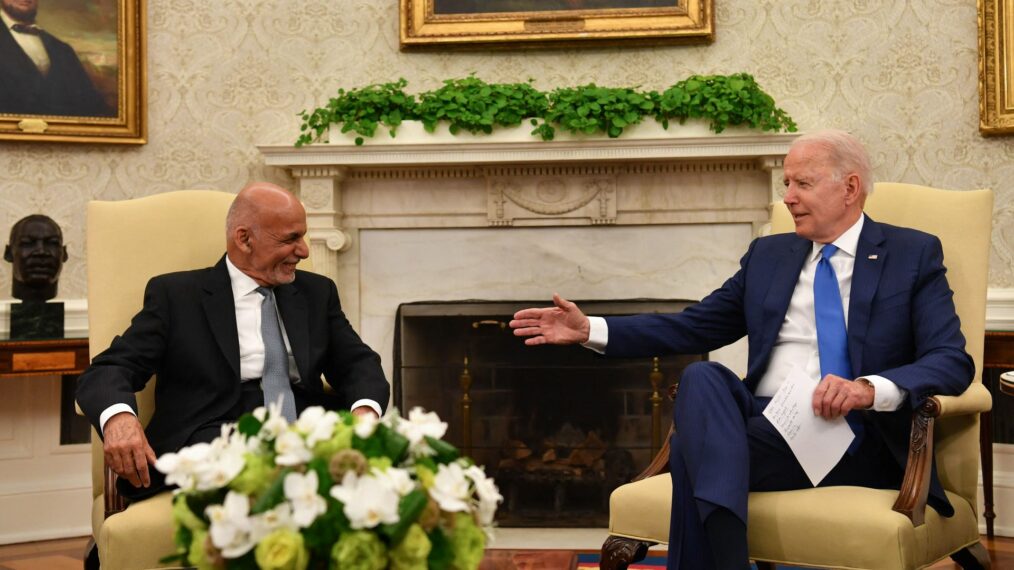The fate of Dr. Mohammad Najibullah haunts contemporary discussions over the future of Afghanistan. In the spring of 1992, Najibullah’s government collapsed under the pressure of mujahideen forces. While the Soviet withdrawal from Afghanistan weakened his government, the cessation of Soviet aid flowing into the country marked the final nail in his coffin.
Since President Biden announced America’s intention to fully withdraw from Afghanistan by September 11th, observers have worriedly speculated whether or not Afghan President, Ashraf Ghani, might meet the same fate as Najibullah. The American intelligence community has predicted that the Afghan government could fall in as soon as six months. Despite this bleak projection, Biden is committed to bringing American troops home.
Over the last few weeks, American soldiers have transferred major American bases in Afghanistan to the Afghan security forces. Americans have already departed Kandahar Airfield; Baghram Airfield is expected to be vacated in the coming days. Additionally, Biden plans to evacuate the military’s Afghan contractors from the country if they wish to leave, a move Ghani warns will damage morale among Afghan soldiers. Still, Biden insists that this withdrawal does not amount to an abandonment of Afghanistan.
Accompanying his decision to withdraw, Biden is providing $300 million in additional aid to the Afghan government. This aid appears to be the crux of his strategy for defending the Afghan government. Secretary of State Antony Blinken has succinctly explained Biden’s policy: “As the United States begins withdrawing our troops, we will use our civilian and economic assistance to advance a just and durable peace for Afghanistan.”
Already, the folly of an aid-driven strategy is becoming apparent. Without American military support, Afghan security forces have been reluctant to put up a fight, abandoning dozens of military bases and police checkpoints across the country. According to the American Joint Chiefs of Staff, 81 of Afghanistan’s 419 district centers are now under Taliban control. While the Taliban has thus far been unable to seize any provincial capitals, they have encircled the capital of Kunduz and appear to have momentum on their side. Beleaguered by corruption, ammunition shortages, and high casualty rates, the Afghan security forces have failed to put up adequate resistance.
Some representatives of the Afghan government have begun independently fighting the Taliban. In Mazar-i-Sharif, the Deputy Speaker of Parliament, Abbas Ibrahimzada, has taken to arming his supporters. Many similar militias have sprung up across northern Afghanistan. Districts under Taliban siege lack not only supplies but national leadership. It will take more than foreign aid to hold the Taliban back. Biden must make a diplomatic commitment to Afghanistan, in addition to his economic one, if the “senseless violence” he detests is to end.
In a recent statement, Biden’s spokeswoman, Jen Psaki, affirmed that the U.S. will continue “providing diplomatic, economic, and humanitarian assistance to support the Afghan people.” But the strength of America’s diplomatic commitment to Afghanistan remains unclear. Biden’s administration is likely to keep encouraging a resumption of the American-backed peace talks in Istanbul. While these talks can produce temporary ceasefires, they will never sustain a long-term peace without the cooperation of Afghanistan’s neighbors. Most crucially Pakistan.
Biden’s administration has been reluctant to engage Pakistan. Biden has not even called Pakistani Prime Minister Imran Khan, even though Ghani sees Pakistan as central to the Afghan conflict. Talking to American lawmakers last Friday, he reportedly remarked that “the Taliban is the hands, but Pakistan is the brains” of the insurgency.
Pakistan’s position toward the U.S. withdrawal has been ambivalent. Khan has been adamant that U.S. troops will “absolutely not” be permitted to conduct operations in Afghanistan from military bases in Pakistan. However, in a Washington Post op-ed, he stated that “Pakistan is ready to be a partner for peace in Afghanistan.” While Pakistan is unsupportive of the Afghan government and many American objectives in the region, Khan has repudiated the idea of a complete Taliban takeover of Afghanistan.
Despite its long history of interference in Afghan affairs and support for the Taliban, Pakistan has an interest in peace. It does not want to endure the potential spillover effects of a prolonged Afghan civil war, no longer constrained by the presence of American troops.
Biden could work to promote the common objectives of America and Pakistan. His reluctance to do so suggests a sense of apathy about Afghanistan. Or, alternatively, a desire to take a new tact with Pakistan, given its increasingly close relationship with China. Regardless, Biden clearly has priorities that rank higher for him than Afghanistan.
Biden’s policy toward Afghanistan suggests that he has adopted the same war-weariness as the American public. For this, he can hardly be blamed. For the duration of the war, policymakers have struggled to define the preferred outcomes of the American military presence in Afghanistan. Still, Biden must avoid the aimlessness of his predecessors. He must articulate a clear alternative vision for America’s policy toward Afghanistan that puts diplomacy first.
Biden’s recent statements on the Afghan peace process are a combination of boilerplate and platitudes. One can expect this from an administration that wishes to politely exit America’s “forever war” while morally saving face. Biden has insisted that “Afghans are going to have to decide their future,” but he knows they will not be able to. Instead, the country that most forcefully devotes its resources to dominating Afghanistan will determine the country’s future. Biden seems reluctant to challenge this status quo, but he could.
A diplomatic solution to the war in Afghanistan is possible, but it would require multiple tracks of diplomacy. Biden cannot only rely on reviving the multilateral Istanbul talks. He must unilaterally engage with the key players in Afghanistan: Pakistan, Iran, and Turkey. Biden does not appear interested in unilateral engagement, but he should be. It could help promote a settlement between the Afghan government and the Taliban. It could also help Biden build necessary diplomatic relationships for his upcoming focus on the rise of China.



